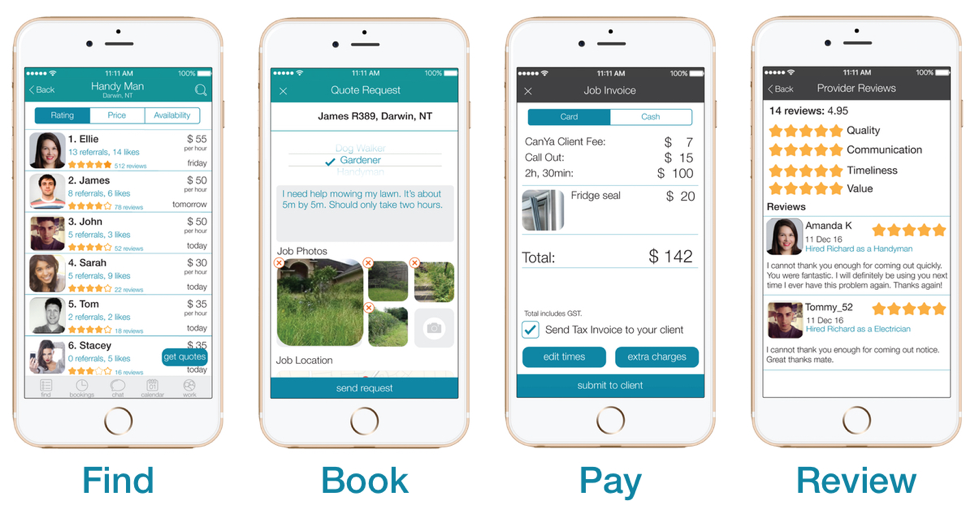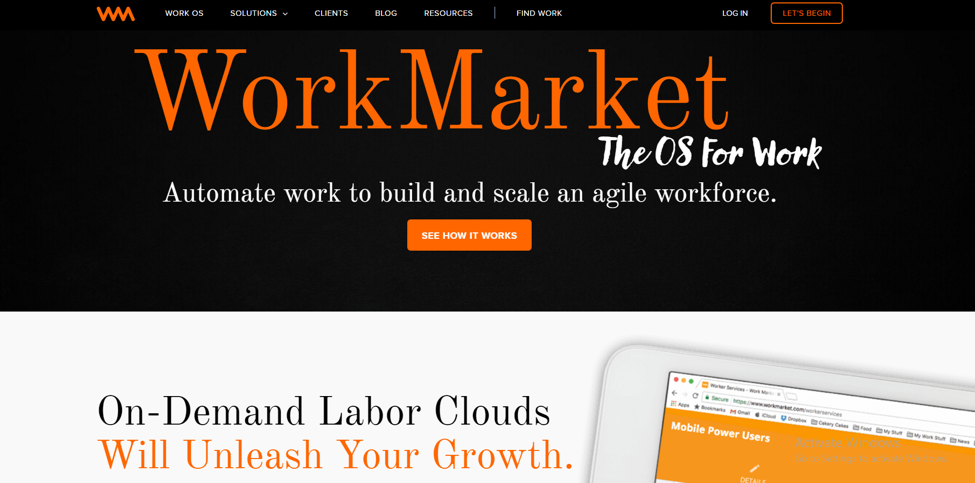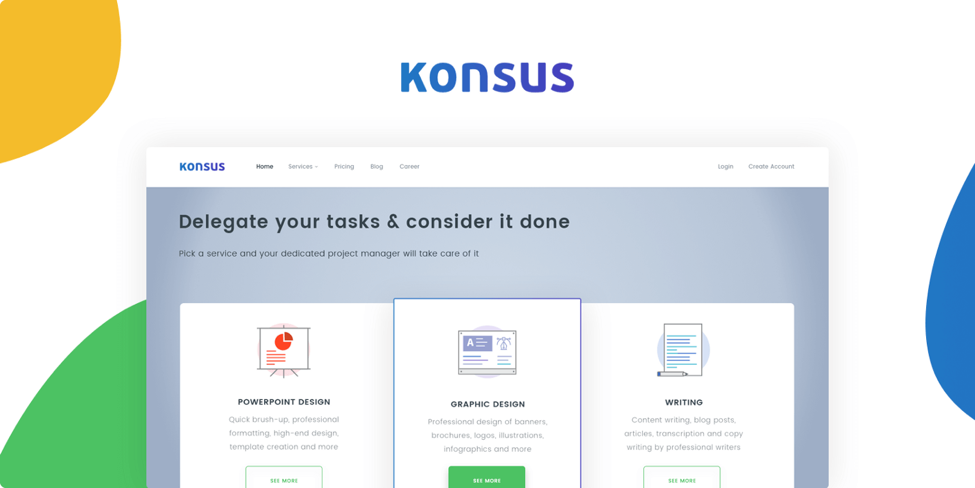A recent study commissioned by the Freelancers Union revealed that 7 in 10 entrepreneurial respondents believed that modern technologies have enabled them to find work more easily than in years gone by.
This is especially beneficial considering that freelancers comprise 35% of America’s workforce.
What has become quite a challenge for many, however, is the extreme levels of global competition on websites like Upwork, Fiverr, and other digital pillars of the gig economy.
The superabundance of remote freelance talent vying for corporate and startup dollars on these types of sites forces many to branch out in search of more prosperous, less competitive online destinations.
Fortunately, 2017 has been an impressive year for the gig economy, and many new and innovative digital marketplaces have materialized. Many of these platforms represent a new evolution for freelance job websites; one that brings fresh, new ideas to the table and empowers independent professionals to a greater degree than ever before.
While none of the sites you’ll find here are the biggest names on the block, that’s kind of the point.
If you’re tired of getting undercut by less experienced freelancers on the most popular online destinations, check out these 5 creative and revolutionary new freelance platforms.

1. CanYa
CanYa is a brand-new blockchain-based freelance marketplace that describes itself as, “. . . a hybrid between an on-chain cryptocurrency payment layer using CanYa Coins, and a fast off-chain service that enables users to find and book services, and for service providers to list their skills and services.”
Users can safely and securely search the CanYa application for a service provider from a list of freelancers in their area. Providers can complete everything from casual tasks to highly technical projects for professionals.
Since CanYa leverages blockchain technology, which is, “. . . an open, distributed ledger that can efficiently record transactions between two parties in a verifiable, permanent way,” as defined by Bitcoin Exchange Guide, the platform provides a trusted community of users and providers that have all been reviewed, verified, and rated by the commonwealth of its userbase.
CanYa has four main components:
The Marketplace: Providers sell their skills in a decentralized, global marketplace. This operates as a meritocracy in which skilled freelancers gain more exposure, and low-quality providers rank toward the bottom.
A Digital Wallet: Users can load their wallet with CanYa Coins – which are ERC20-compliant tokens – to pay for services in the marketplace.
CanYa Coins: Providers earn CanYa Coins for completing tasks and projects. These can be spent in-app on other services or converted to a variety of currencies and transferred to a digital wallet. Best of all, CanYa features no fees or transaction limits.
P2P Services: Users can find, and instantly pay for, services. Solutions can be found locally or internationally.
Through this type of platform, freelancers can earn more money by not having to pay hefty fees, and let their abilities shine within CanYa’s meritocratic system.

2. WorkMarket
WorkMarket is one of the online marketplaces that freelancers of all skill levels can find work on as the platform offers a myriad of disciplines.
WorkMarket partners with major corporations such as Walmart, FedEx, and other big names. Through the marketplace, these companies can directly hire freelancers that suit their needs.
Businesses can find premium talent on this platforms as freelancers, after establishing a profile, must complete specific tests before qualifying for certain types of work. Once tests are passed, freelancers can ask to be invited into a company’s potential talent pool or search jobs within their field.
Considering the number of on-site jobs that WorkMarket boasts, the platform helps freelancers accommodate corporate needs by partnering with various services to verifying social security numbers, organizing drug tests, or handling freelance accounting needs.

3. Coworks
Coworks is a freelance platform geared toward creative communities that enables independents to brandish their body of work in a public manner, similar to how they would via social media.
Through this paradigm, creative freelancers are matched with working opportunities that best bit their qualifications, strengths, and preferences.
Business owners are free to connect and engage with freelances who feature curated propositions, either accepting and starting work together, or passing opportunities on to a friend.
As a sizable bonus, Coworks features a modest 12% commission rate, which is well below industry standards.

4. Loom
If there’s one thing that business owners loathe about working with freelancers, it’s their lack of investment, or “skin in the game.”
On the flip side, freelancers often feel barred from understanding the inner-workings of the businesses they support, and share little to none of the large-scale successes.
Loom is a freelance platform that seeks to change this dynamic by enabling startups and corporations to pay freelancers in, “. . . cash, equity, or a combination of both.”
By utilizing this approach, businesses can obtain a higher level of work and satisfaction from freelance offerings as there is now a more tangible opportunity to stay connected to the company’s overall success.

5. Konsus
One of the greatest headaches about freelance websites is having to apply for project after project; it’s tedious, draining, and sometimes an outright waste of time.
Konsus seeks to solve this monotony by eliminating proposals altogether. This freelance platform bypasses the situation in favor of handling the vetting during signup where prospects go through the actual application process..
For those that are approved (which Konsus claims a mere 2% are), there is a reliable stream of work that freelancers can claim whenever they are available. Work categories include:
- Data entry
- Content writing
- Graphic design
- Research
- Web development
- PowerPoint design
- And others
The only drawback to this platform is that Konsus leverages fixed hourly prices. If that isn’t a deterrent, Konsus is a fantastic tool.
Freelancers need to diversify the platforms they leverage for earning an income. This grows increasingly more important as the gig economy continues to expand and welcome throngs of new freelancers into the fold.
Be sure to check out these 5 innovative freelance marketplaces today. You might just end up on the crest of the next big thing in the gig economy.







